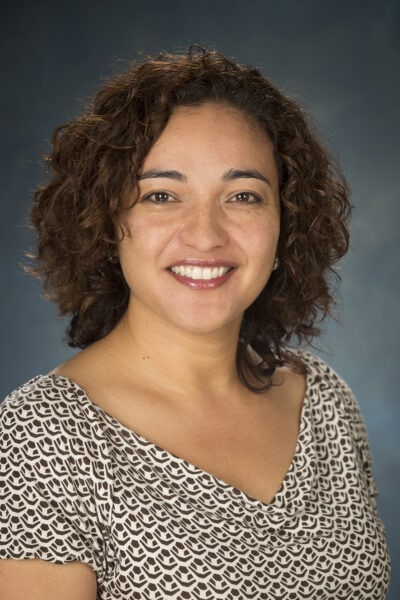Lilia Fernández is an associate professor and the Henry Rutgers Term Chair at Rutgers University. She lives in New Brunswick, New Jersey, and has been a member since 2015.
Website: https://latcar.rutgers.edu/people/core-faculty/209-lilia-fernandez

Alma maters: AB (government), Harvard College, 1994; EdM (educational policy studies), University of Illinois, Urbana-Champaign, 2000; PhD (ethnic studies), University of California, San Diego, 2005
Fields of interest: Latino/a, urban, immigration, women’s
Describe your career path. What led you to where you are today?
I always had a fascination with the past, from the stories my mother and grandmother used to tell me, to the architecture and mystery of old buildings. I knew that I wanted to learn more about the Latino/a populations that I grew up with in Chicago but it took me a while to figure out my career path. I chose an interdisciplinary doctoral program but was guided by historians in how to explore my research interests. I am grateful for the interdisciplinary exposure I received in graduate school—it has enriched my work as a historian and has inspired me to produce solid scholarship.
What do you like the most about where you live and work?
I love Rutgers students. They come from many backgrounds and experiences but they are all making their way through young adulthood and college. I enjoy seeing them get excited about history and curious about how the past has shaped our world today. I have some great colleagues as well. I also enjoy living close to campus and having access to so much that the area has to offer.
What projects are you currently working on?
I am working on a second book on Latino history in Chicago as well as leading students in research on the diverse Latino/a populations of New Jersey.
Have your interests evolved since graduation? If so, how?
Yes and no. I continue to be focused on documenting the history of Latino/a people in the US, as the more research I do, the more I discover how woefully underrepresented and invisible Latinos/as are in official archives. Yet because I explore so many different facets of Latino life in the US, I also find myself delving into areas that I have never explored before—business history and disability history, among other fields.
What’s the most fascinating thing you’ve ever found at the archives or while doing research?
Too many things to list here! The labor research I have been doing lately has really opened up a whole new world to me. I am fascinated by the manufacturing sites where Latinos/as labored in mid-20th-century Chicago and the vibrant industrial landscape of postwar Chicago.
Is there an article, book, movie, blog etc. that you could recommend to fellow AHA members?
Nancy MacLean’s Democracy in Chains is a an excellent account of the rise of neoliberalism and libertarian ideology. I also found Kelly Lytle Hernandez’s City of Inmates a riveting history of incarceration in Los Angeles.
What do you value most about the history discipline?
I appreciate how it gets students to think critically and ask probing questions about the past. Most importantly, studying history helps us understand our present moment.
Why is membership in the AHA important to you?
My membership in the AHA gives me access to a professional network, colleagues, and a wide variety of resources. I enjoy being connected to other historians across the country and beyond.
AHA members are involved in all fields of history, with wide-ranging specializations, interests, and areas of employment. To recognize our talented and eclectic membership, Perspectives Daily features a regular AHA Member Spotlight series.
This work is licensed under a Creative Commons Attribution-NonCommercial-NoDerivatives 4.0 International License. Attribution must provide author name, article title, Perspectives on History, date of publication, and a link to this page. This license applies only to the article, not to text or images used here by permission.



